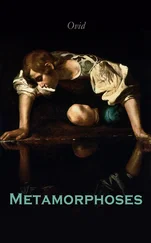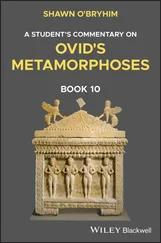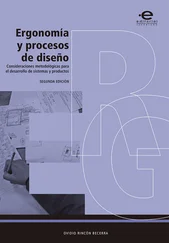Ovid - Fasti
Здесь есть возможность читать онлайн «Ovid - Fasti» — ознакомительный отрывок электронной книги совершенно бесплатно, а после прочтения отрывка купить полную версию. В некоторых случаях можно слушать аудио, скачать через торрент в формате fb2 и присутствует краткое содержание. Жанр: foreign_poetry, Поэзия, foreign_antique, foreign_prose, на латинском языке. Описание произведения, (предисловие) а так же отзывы посетителей доступны на портале библиотеки ЛибКат.
- Название:Fasti
- Автор:
- Жанр:
- Год:неизвестен
- ISBN:нет данных
- Рейтинг книги:3 / 5. Голосов: 1
-
Избранное:Добавить в избранное
- Отзывы:
-
Ваша оценка:
- 60
- 1
- 2
- 3
- 4
- 5
Fasti: краткое содержание, описание и аннотация
Предлагаем к чтению аннотацию, описание, краткое содержание или предисловие (зависит от того, что написал сам автор книги «Fasti»). Если вы не нашли необходимую информацию о книге — напишите в комментариях, мы постараемся отыскать её.
Fasti — читать онлайн ознакомительный отрывок
Ниже представлен текст книги, разбитый по страницам. Система сохранения места последней прочитанной страницы, позволяет с удобством читать онлайн бесплатно книгу «Fasti», без необходимости каждый раз заново искать на чём Вы остановились. Поставьте закладку, и сможете в любой момент перейти на страницу, на которой закончили чтение.
Интервал:
Закладка:
15-20. All the terms annue , etc. used here, are such as would be addressed to a deity.— Laudes , praiseworthy deeds.— Tuorum , like vobis , v. 9.— Pagina for liber .— Movetur scil; with awe. He personifies the book.— Clario Deo . There was a celebrated oracle of the Clarian Apollo, near Colophon, in Asia Minor, which Germanicus himself once consulted. Tac. Annal. xii. 22.
21, 22. Germanicus had pleaded causes publicly with success, Suet. Cal. 4. Dion. 56. 26.
23-25. He had written Greek comedies, Suet, ut sup . He also made a version of Aratus which is still extant,
26. Totus annus , i. e. the whole poem on the year.
27. Tempora , the parts of the year, i. e. months and days.— Cond. urb . Romulus.
28. See Introd. § 2.
33, 34. That is ten lunar months.
35, 35. This is putting the effect for the cause, the mourning was for ten months, because that was the length of the original year.— Tristia signa , the signs of grief, such as avoiding society, wearing mourning, &c.
37. Trabeati , Romulus wore the trabea. Liv. I. 8.
38. Populis , i. e. civibus.—Annua jura daret , i.e. regulated the year, v. 27.
40. Princeps head or origin. Venus was the mother of aeneas, Mars the father of Romulus.
41. See the beginning of Books III and IV.
42. Quinctilis, Sextilis, September, &c.
43. Nec avitas , see below II. 19. et seq .
45-62. See Introd. § 3.
50. Qui jam , &c. a half holiday, the latter part of the day might be devoted to business.
52. Honoratus , as bearing office. It was applied with peculiar propriety to the Praetor whose edicts were called the Jus honorarium .
53. The Dies comitiales on which cum populo licebat agi , i. e. laws might be proposed, &c.— Septis the wooden palings, within which the people were assembled in the Campus Martius, to pass laws.
54. The Nundinae. Every ninth day the country people came into Rome to attend the market. By the Hortensian law, these days were made fasti in order that their rustic disputes might be settled.
55. On all the Kalends the Pontifex Minor and the Regina Sacrorum sacrificed to Juno who was by some regarded as the moon. For the name Juno see my Mythology, p. 461.— Junonis , Heinsius would read Junonia .
56. A sacrifice of a lamb was offered on the Capitol to Jupiter on the Ides of each month.
57. The Nones were not under the care of any deity.
57-60. The days following the Kalends, Nones and Ides were termed Atri , black or unlucky, as on these days, the Romans had met with their most memorable defeats at the Cremera, the Allia, and elsewhere. A public calamity on any particular day of any one month rendered ater , that day in every other month.
61, 62. I say it once for all.
63. For the mythology of Janus, see Mythology, p. 466, et seq .
65. An. tac lab . denotes the noiseless pace of time.— Origo as the year began with January.
66. See his figure. Mythology, Plate xii. 4.
67. Ducibus , perhaps Tib. and Germ, after the victory gained by the latter over the Catti and Cherusci, and other German tribes, A.U.C. 770; it may, however, include Augustus and other generals.
68. Terra ferax, the [Greek: zeidoros arera] of Homer.
69. Tuis , Burmann would read tui as it seems awkward to say the Patres Jani and the Populus Quirini. Quirinus was a name of Janus ( Janum Quirinum ter clusit Suet. Aug. 22.) and Gierig thinks the true reading might have been Quirine . After all it was perhaps the constraint of the metre that made the poet express himself thus.
70. Candida templa , either as being built of marble, or on account of those who frequented them on festival days, being clad in white. Gierig inclines to the latter, I should prefer the former sense.
71. Lin. anim. fav . [Greek: euphaemeite] by using no words of ill omen and by admitting no thoughts but what were good.
75. Odor. ig . with the frankincense, cinnamon, saffron, &c. which were burnt on the altars.
76. Spica Cilissa , the saffron from Mount Corycus in Cilicia.– Spica , the chives or filaments of the saffron.— Sonet , when the saffron was good it crackled in the fire.
77. Aurum , the gilded roof of the temple.
79, 80. Vest, intact . with new or white garments, the Roman toga was white.— Concolor , a festal or happy day was metaphorically termed white.— Tarp. Arces , the Capitol. It was the practice ever since A.U.C. 601 for the consuls elect, followed by the people, to go in procession to the Capitol and offer a sacrifice to Jupiter.
81, 82. The consuls entered on their office on this day.— Purpura , the toga praetexta or trabea , worn by magistrates.— Ebur , the curule chair.
83. Rudis operum , that had never been worked.
84. Herba Fal . &c., the land of Falerii in Etruria, whence the animals for sacrifice were chiefly brought, the water of the Clitumnus, in Umbria, was supposed to make them white, Virg. G. II. 146.
85. Arce , either the Capitol, or the dome of Heaven, see Met. I. 163. Virg aen. I. 223.
88. Pop. rer. pol . the Romanos rerum dominos of Virgil.
89. The poet here commences his enquiry into the mythology of Janus.
90. There was no deity worshipped in Greece whose attributes were the same as those of Janus. A curious similarity has been traced out between him and the Ganesa of India.
93. Tabellis , his writing-tables.
94. A usual sign of the presence of a Deity.
100. Ore priore , his front face. See his image.
101. Vat. oper. dier . Poet engaged on the days.
103. First opinion, Janus was the World.
105-110. Compare Met. I. init .
113, 114. His back and front figure were the same, a memorial of the time when the world was in a chaotic state of confusion, all its parts being alike. This is a very silly explanation.
115. Second opinion, see below v. 135-140.
116. His office of door-keeper ( Janitor ) of heaven and earth.
120. The cardines of heaven, if they are meant, are the cardinal points, where according to the poetic creed of the Augustan age there were doors for the gods to go in and out of heaven. Stat. Theb. i. 158, vii. 35. x. 1. See Mythology, p. 39.
121. He represents Peace and War as persons in the custody of Janus.– Placidis as being the abode of Peace.
122. Perpetuas , long.
125. See Hom. II. v. 749, et seq . Mythology p. 150.
127. Janus à janua .
127, 128. Cereale libum , the Janual , a kind of cake offered to Janus. Festus sub. voc.—Imponit on the altar.— Far mix. sal . the Mola salsa .
129, 130. Patulcius (à pateo) the Opener, Clusius (à claudo) the Shutter; sacrifical names of Janus.
133. Vis i.e. officium .
134. From what I have said you already in part perceive it.
137. Primi tecti , the first part of the house, i.e. the entrance.
141, 142. The three-faced Hecate, (see her figure Mythology, Plate III. 2.) was placed at the triviae , or the point where a road branched off (like the Greek capital Y) so that a face looked down each road.
149, 150. The poet naturally asks why the year began in the middle of winter and not in the spring. This gives him an opportunity of introducing the following lovely description with which compare, Virg. G. II. 324, et seq . Lucret I. 5, et seq . and below III. 236 et seq . IV. 87 et seq .
Читать дальшеИнтервал:
Закладка:
Похожие книги на «Fasti»
Представляем Вашему вниманию похожие книги на «Fasti» списком для выбора. Мы отобрали схожую по названию и смыслу литературу в надежде предоставить читателям больше вариантов отыскать новые, интересные, ещё непрочитанные произведения.
Обсуждение, отзывы о книге «Fasti» и просто собственные мнения читателей. Оставьте ваши комментарии, напишите, что Вы думаете о произведении, его смысле или главных героях. Укажите что конкретно понравилось, а что нет, и почему Вы так считаете.












